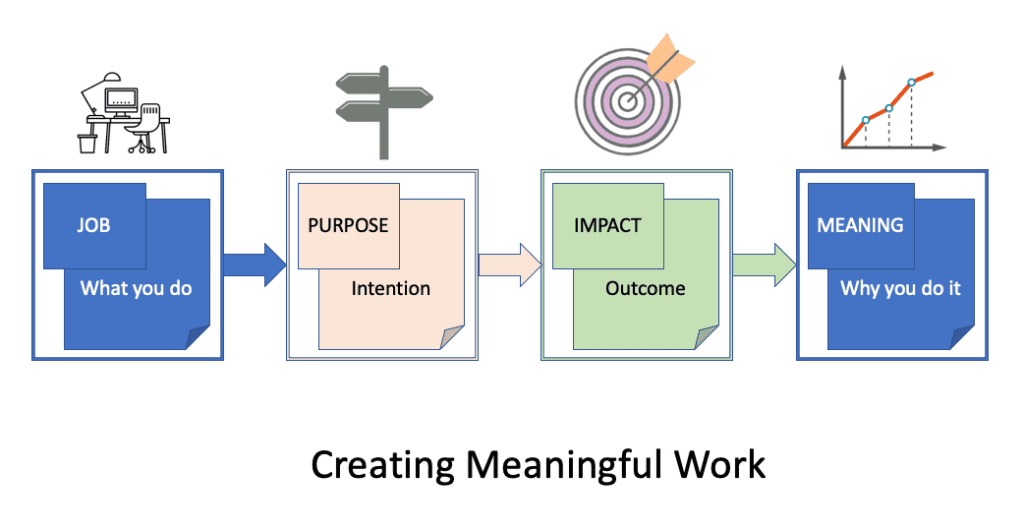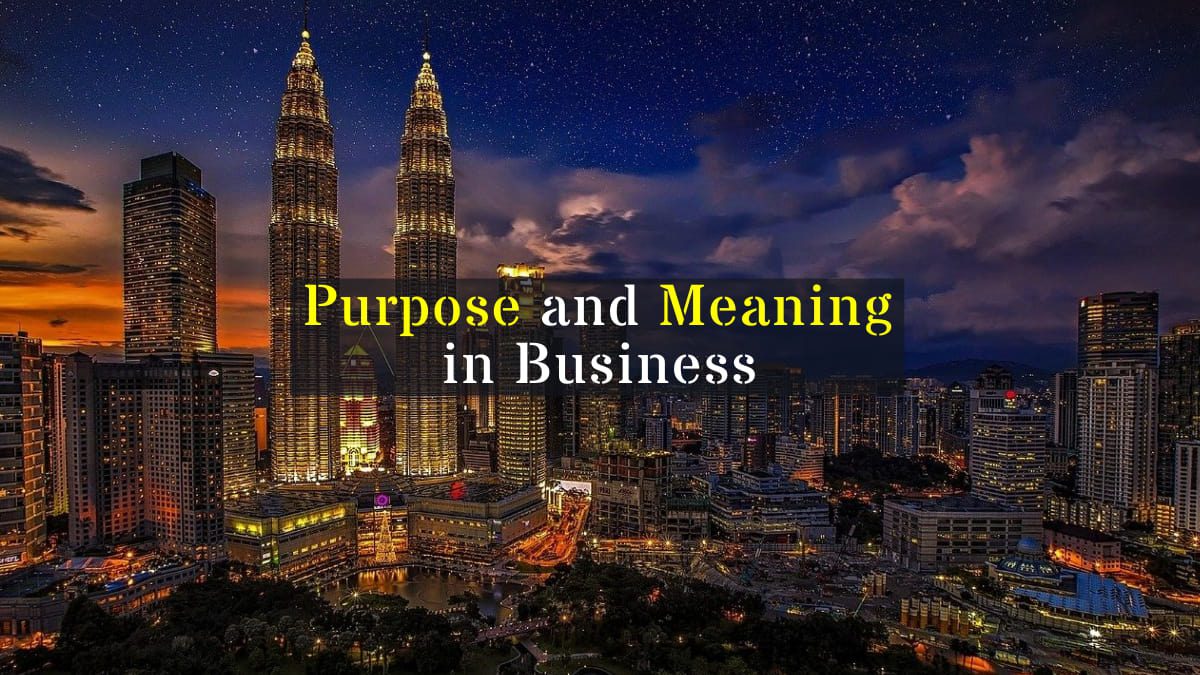Table of Contents
Mindy Grossman is the CEO of WW (formerly known as Weight Watchers), which employs around 20,000 people around the world. Mindy shared her view on purpose and meaning as “Brands of the future are going to have to understand what their purpose and meaning is, no matter what business they’re in. Purpose and meaning will be even more valuable in the future.”
In August 2019, the CEOs of almost 200 major U.S. organizations, including Amazon, Apple, Boeing, and GM, came together to issue a statement saying shareholder value, something that was long thought to be the purpose of an organization, is no longer their primary concern. Instead, the new purposes of an organization are to invest in employees, deliver value to customers, deal ethically with suppliers, and support outside communities. This is a tremendous shift in how we think about business and how we lead those businesses.
The Surveys
For decades, the business world has been under the assumption that in order to attract and retain the best people, you simply need to pay them more. This was the greatest lever that organizations could pull, but now it’s becoming evident that employees care about more than just making money. A recent study conducted by BetterUp surveyed 2,285 American professionals across 26 industries and found that 9 out of 10 workers would trade money for meaning. How much would they trade? On average 23% of future earnings, which comes to $21,000 per year in order to have work that is always meaningful. The same study showed that employees with meaningful work stay at the company longer, take fewer paid leave days, and are more inspired (BetterUp, 2018).
Robert Half researched why employees quit their current jobs, and one of the top responses was to work for another organization with a higher purpose. Another survey run, by Imperative, looked at 26,000 LinkedIn members across 40 countries and found that 74% of candidates want a job where they feel like their work matters (Vesty, 2016). Wrike, a work management software company, recently put out a “Happiness Poll” that looked at 4,000 employees in the UK, Germany, France, and the United States and what makes them happy at work and how that impacts the productivity. In the UK, the number-one factor that contributed to employee happiness was doing meaningful work and feeling connected to a purpose (Wrike, 2019).
Purpose Fulfill Meaning
The words “purpose” and “meaning” are often grouped together. While they are related, it’s important for us to understand that they mean different things and to distinguish between them. Employees have a job, that job yields a purpose, as a result of that purpose there is an impact, and from that impact employees will ideally derive meaning. Dr. Paul T.P. Wong, professor emeritus of Trent University, adjunct professor at Saybrook University, puts this succinctly: the role of purpose is to fulfill a meaning.
Purpose acts as the bridge between the work you are doing and the impact that the work has on customers, other employees, communities, or the world. But do you get meaning from the work you are doing? Meaning is very subjective and unique to each of us and this is often where employees struggle.
For the customer service agent, meaning might come from helping people and trying to make their lives a little bit better; for the developer, meaning might come from solving complex problems; for the salesperson, meaning might come from building relationships and the human connection that inherently comes from selling. As you can see, purpose and meaning are not the same things, even though they are very much tied together.
The Cogs in Machine

In the context of business, the job you have quite simply refers to the activities you do, whether that is writing code, selling products or services, helping customers, or the like. The purpose of the job goes one level deeper. You write code because you are trying to design a user-friendly website that customers can easily access; you sell products or services because you want to help the company generate revenue and grow.
The impact piece is what actually happens from your purpose. In other words, you help customers because you want to create great experiences for them. The purpose is about the potential but the impact is what it really is. Meaning is more about why you are personally doing something and the feeling you get from doing it.
Unfortunately, most people and organizations struggle to understand the purpose. This is because we have built organizations to focus on jobs, tasks, and things to keep us busy. Many employees around the world actually have no idea how the work they are doing is impacting anyone or anything; they are simply cogs in a machine. One of the reasons so many employees struggle with meaning is because they don’t even understand their purpose.
Purpose Leads to Revenue Growth
A study conducted by Reward Gateway, found that although 89% of employers say it’s critical that employees understand the company’s mission, only 25% of employees feel completely informed about the purpose and mission and 32% are completely uninformed (Reward Gateway, 2018). This is very basic stuff.
A study by E.Y. Beacon Institute and Harvard Business School found that 42% of non-purpose-led companies showed a drop in revenue over a three-year period while 85% of purpose-led companies showed positive growth (Keller, 2015). Not surprisingly, focusing on these things actually impacts the bottom line. In 2018 Mercer surveyed over 7,600 employees around the world and one of the top talent trends they identified was working with purpose (Mercer, 2018).
Way Ahead
Purpose and meaning are not just “work issues.” These are basic human themes that are a part of our very nature. As a species, we have constantly asked, “What is the meaning of life?” “What is my purpose?” “Why am I here?” The quest to feel connected and to feel like we have a greater purpose and meaning in life is never ending and it’s not something that can be suppressed by money.
Purpose and meaning are unique human things that we all desire, crave, and need. The balance of power has dramatically shifted into the hands of employees, and organizations around the world are focusing on creating an employee experience so that employees actually want to show up to work. Employees are saying that they want to be part of an organization where they understand their purpose and can find meaning. A study from BetterUp found that employees produce more, work more, stay at companies longer, and will sacrifice higher pay if they find meaning in their work. It’s a bit disheartening that employees around the world are begging for these human aspects of work and aren’t able to get them.
If you are an employee or employer, then what is your opinion on these two aspects i.e. purpose and meaning in business. (Excerpt is from ‘The Future Leader’ by Jacob Morgan).















